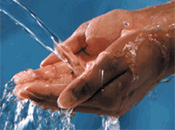 Should cities and municipalities enter into partnerships with private companies? Public entities and private companies have been successfully collaborating for years via advisory boards, stakeholder groups and governance bodies to leverage the collective experience, knowledge and expertise of a broader group. From infrastructure renewal programs in Louisville, Kentucky, to highway safety patrols in Pennsylvania and park programs in Nashville, Tennessee, for many cities, Public-Private Partnerships (PPPs) are an alternative worth pursuing. Cities, towns and municipalities across the country are facing tremendous challenges in an environment of increasing demand on aging infrastructure, struggling against reduced budgets.
Should cities and municipalities enter into partnerships with private companies? Public entities and private companies have been successfully collaborating for years via advisory boards, stakeholder groups and governance bodies to leverage the collective experience, knowledge and expertise of a broader group. From infrastructure renewal programs in Louisville, Kentucky, to highway safety patrols in Pennsylvania and park programs in Nashville, Tennessee, for many cities, Public-Private Partnerships (PPPs) are an alternative worth pursuing. Cities, towns and municipalities across the country are facing tremendous challenges in an environment of increasing demand on aging infrastructure, struggling against reduced budgets.
According to a report by the National League of Cities (NLC), “Coming into 2013, cities were experiencing the sixth year in a row of declining revenues.” While there are signs of improvement, the report states that “cities are still struggling in significant ways, signaling that growth is not keeping pace at a level that is needed for a sustained recovery.”
A few years ago, Kentucky Fried Chicken (KFC) launched a “pilot infrastructure renewal program,” in Louisville, Kentucky, hiring a road crew to fill potholes, which were stenciled with the KFC brand.
“Budgets are tight for cities across the country, and finding funding for needed road repairs is a continuing challenge,” Jerry Abramson, Louisville Metro Mayor, said in the release. “It’s great to have a concerned corporation like KFC create innovative private/public partnerships like this pothole refresh program.”
If you are traveling down the Pennsylvania Turnpike, you may have noticed the “State Farm Safety Patrol.” This PPP brings together two groups in a partnership that simply makes sense, given their mutual interest in highway safety.
And San Diego, California, has been described as a model for private sector partnership. The city partnered with Cardiac Science, a developer of cardiology products and services. Cardiac Science became the city’s ”Automated External Defibrillator Partner” in 2001.
According to an article in Athletic Business, ”the revenue from that partnership operates and sustains San Diego Project Heart Beat, the city’s Public Access Defibrillation (PAD) Program, which strives to improve the survivability of sudden cardiac arrest victims by making AEDs as accessible as fire extinguishers in city and county facilities, healthcare facilities, schools, businesses and tourist attractions.”
According to the project’s website, San Diego Project Heart Beat has helped save 107 lives.
As these examples demonstrate, PPPs are often a way for the city to work with a private partner to deliver a program that addresses a specific need in the community. The NLC Service Line Warranty Program was created from the need to provide an affordable service line repair solution to homeowners, educate the public on service line responsibilities and help with water conservation efforts.
Utility Service Partners (USP) is committed to providing valuable service line protection at a fair market price, helping our municipal partners educate residents about their service line responsibilities and ensuring every interaction with customers and city stakeholders exceeds expectations. Service Line Warranties of America, USP’s consumer brand, is the honored recipient of the 2013 Western Pennsylvania Better Business Bureau Torch Award for Marketplace Ethics.
The NLC Service Line Warranty Program is a uniquely co-branded program between the program’s administrator, Utility Service Partners, and municipalities. The power of municipal co-branding is that it serves to build confidence in the quality of the program, promoting a higher adoption rate. Consistent with NLC’s public policy initiatives to address the national problem of aging water and sewer infrastructure along with the associated water quality issues, this program does not endorse the marketing of unrelated products.
Jim Hunt, past NLC President and founder of Amazing Cities, stated, “As I now meet with cities in all parts of the country, many are excited to look at this Public-Private Partnership and provide the opportunity for their citizens to be protected from catastrophic expense associated with failed water and sewer lines. The National League of Cities continues to provide quality programs to member cities, which address critical problems for our citizens.”
Although hampered by misconceptions, leadership in many cities has sought such innovative partnerships for one simple reason: because the people want timely and efficient service.



